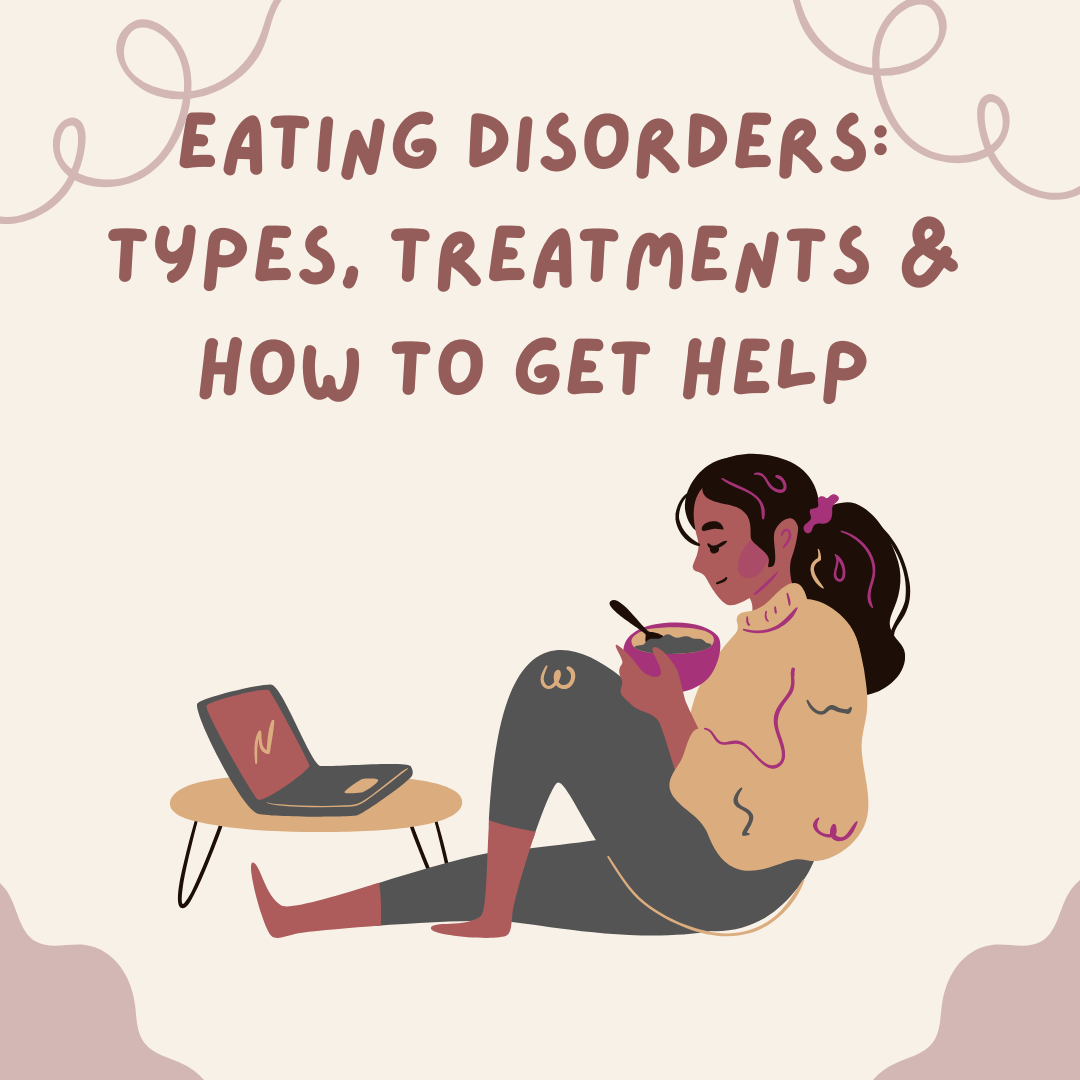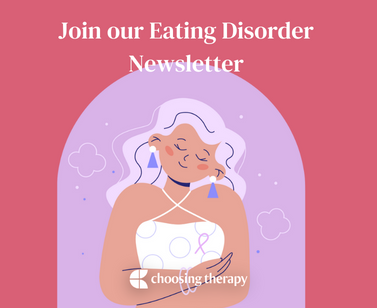Orthorexia and anorexia share some similarities, such as both conditions involving limiting the amount of food someone consumes. Anorexia is characterized by a tracking of calories, while orthorexia is more so a fixation on the quality of the food and the concept of healthy eating. With proper treatment, someone can experience relief from both patterns of disordered eating.
Struggling with your relationship with food? Do you find yourself constantly thinking about food or your body? It can be exhausting to have these thoughts. The good news is: you don’t have to feel this way. Take the first step towards healing by taking Equip’s free, confidential eating disorder screener. Learn more
What Is Orthorexia?
Orthorexia is a form of disordered eating that includes an obsession with healthy eating, so much so that it interferes with someone’s day-to-day activities. Those with this condition put a lot of thought behind planning healthy meals and spending more money than they have to achieve this goal. They use food to feel better about themselves under the guise of healthy eating.
Orthorexia is not currently a diagnosable condition. There are some behaviors that can appear innocent in nature, like reading nutrition labels. This may be overlooked because society tends to encourage mindful food choices. Orthorexia certainly is related to shame about food habits, eating, and one’s weight or body image issues. It could also be a response to trauma in the form of needing control.1
Some common signs of orthorexia include:2
- Elimination of entire food groups, deeming them “unhealthy”
- Excessive talk about nutrition, food ingredients, etc.
- Obsession about certain brands, ingredients for meals
- Refusing to eat anything different than what they consider healthy
- Expressing stress when unable to control the food options
- Avoiding social interactions based around food
What Is Anorexia Nervosa?
Anorexia is an eating disorder involving a fear of gaining weight, with someone drastically limiting their food intake. This is a diagnosable condition, and those with this condition tend to feel incredibly insecure about their bodies. Unfortunately, this opens a person up to short-term and long-term physical effects such as organ failure, weakness, and hair loss, among other ailments. Someone with anorexia may also engage in purging behaviors such as laxative abuse, calorie counting, and compulsive exercise.3
Some common signs of anorexia include:4
- Extreme food restriction
- Severe weight loss
- Avoidance behaviors around social gatherings involving food
- Body dysmorphia
Similarities Between Anorexia & Orthorexia
There is overlap between anorexia and orthorexia. Both conditions deal with disordered eating, and oftentimes weight loss. People will view food as either good or bad, using specific, rigid criteria to determine what foods will qualify for their diet. Criteria for such can include nutrition facts such as calories, fiber, fats, carbs, sodium, and other nutrients. “Good” foods will likely have low calories, fats, and carbs, whereas “bad” foods will not.5
Similar characteristics of anorexia and orthorexia include:5
- Creating false “allergies” or aversions to foods to avoid consumption
- Strict food rituals
- Calorie counting
- Lying about satiation
- Relying on diet culture to help explain the food fixations
Key Differences Between Anorexia & Orthorexia
Those with orthorexia engage in very different eating disorder compensatory behaviors than those with anorexia. They will typically focus on only eating healthy foods, not engaging in calorie restriction. A person with anorexia is generally very underweight and engages in severe calorie restriction, sometimes coupled with binge or purging behaviors. Someone with orthorexia may not engage in these behaviors and may view these behaviors as disordered—they may use this difference to further validate their behaviors as healthy.6
Differences between anorexia and orthorexia include:6
- Anorexia is recognized by the DSM-5, while orthorexia is not
- Anorexia focuses on weight loss and thinness, while orthorexia does not
- Orthorexia leans on a healthy diet mindset, while anorexia does not (people with anorexia may eat foods that are considered “unhealthy”)
- People who deal with orthorexia are not necessarily physically underweight, while those who deal with anorexia are
- Motivation is likely different: Being “healthy” for those with orthorexia, and being “skinny” for those with anorexia
Eating Disorder Help Eating Disorder Treatment That Works – Delivered At Home. Eating disorder treatment is hard – which is why you deserve a team. Equip offers evidence-based care delivered virtually by a five-person care team, so you can achieve recovery without pressing pause on your life. We take insurance! Get a Consultation Best In-Patient Treatment For Eating Disorders – Find the best local eating disorder treatment center for you. See personalized results and reviews to find the best treatment center covered by your insurance. Start Your Search Affordable, Online Therapy – Are you or a loved one experiencing eating disorder symptoms? Get help from a licensed therapist. Betterhelp offers online therapy starting at $65 per week. Free Assessment
Who Do Orthorexia & Anorexia Affect?
There are many eating disorder statistics available for those with anorexia, though it’s important to recognize that more females are impacted by this disorder. Many who struggle with eating disorders or distorted eating beliefs have been body-shamed in some kind of way. They may either be labeled too thin or too fat, and may receive criticism for their bodies. While a small population may experience anorexia, orthorexia is believed to impact half of those with anorexia. It’s important to note that orthorexia, though not an official diagnosis, can help to identify those on the verge of anorexia.7
How Are Anorexia & Orthorexia Treated?
Treatment may be the same or different for these disorders, as it depends on the individual’s symptoms and beliefs about their disordered eating, but therapy is a front line treatment for eating disorders. Certain medications can be used to treat comorbid conditions such as depression, substance use disorder, and anxiety. This can be helpful for someone with disordered eating, as these symptoms commonly occur concurrently with depression or anxiety.
To find the right therapist, you may want to search an online therapist directory and check your insurance to find one who is in-network. Depending on your physical health, it may be beneficial to reach out to your physician for a referral, so they are aware of the treatment you are receiving. You can also use an online program like Equip Health or Within Health. Leaning on friends and family for support as you pursue treatment can really help in the healing process, as well.8
Treatment options for anorexia and orthorexia may include:
- Exposure therapy: Exposure therapy involves exposing someone to something they fear in an attempt to help desensitize them. It can be helpful to work through fears around body image, weight gain, food quality, etc.
- Enhanced cognitive behavioral therapy (CBT-E): CBT-E is an approach that helps people understand how their thoughts create actions, and the impact their thoughts have on their behaviors. This can be helpful, because it can show us our patterns of distorted thinking and learn ways to combat them.
- Group therapy: Eating disorder group therapy involves a therapist who facilitates healing conversations among a group of people dealing with the same condition. It shows people ways to cope; learn that they are not alone; recognize the ways in which their disorder impacts their social life and relationships; and learn to correct ourselves.
Eating disorders can be challenging to live with. However, eating disorders are highly treatable. BetterHelp has over 20,000 licensed therapists who provide convenient and affordable online therapy. BetterHelp starts at $65 per week. Take a Free Online Assessment and get matched with the right therapist for you.
How to Help a Loved One With an Eating Disorder
If your loved one is struggling with an eating disorder, it can be hard to know how to support them. However, remember that you are not alone. There are ways to help your loved one feel supported without feeling ambushed. You can ask your loved one what their needs are and how you can support them. Make yourself available to help them with meal prep or at meal times as they try to work through their disordered eating. Being available to simply listen to them also goes a long way.
Here are some ways to help a loved one with an eating disorder:
- Be patient: Nothing will be fixed overnight, so being patient with your loved one is important. This is their process, and they will need time to cope.
- Offer support: Support of any kind can go a long way. It can be silent presence, listening, or offering to help with meals. Whatever support is needed, offer that and show up consistently.
- Encourage treatment: Professional treatment is so important for someone struggling with disordered eating. Going with them to therapy or offering support to them as they attend treatment can be helpful in their recovery.
- Validate their feelings: Someone with an eating disorder can struggle with understanding that their needs and emotions are valid. Validating their experience is very encouraging.
- Educate yourself: It can be hard for someone to explain what their eating disorder means to them and how it impacts them. So, researching out and educating yourself on the topic can be helpful.
In My Experience
Frequently Asked Questions
Where do you draw the line between healthy eating and orthorexia?


Healthy eating refers to prioritizing nutrition in everyday life. People who care about healthy eating tend to value a balanced approach to food. Orthorexia, however, is an extreme form of healthy eating. People with orthorexia often feel driven by a compulsive need to eat “clean” or “pure foods,” and they can become dysregulated when they eat something that does not fit within those narrow parameters.
What are the differences in health consequences between orthorexia vs. anorexia?


Both orthorexia and anorexia can come with serious health consequences. Malnutrition is one of the biggest risk factors of anorexia—people may have severe nutritional deficiencies that can cause significant electrolyte imbalances and cardiovascular issues. Orthorexia may entail milder symptoms like gastrointestinal problems and hormonal imbalances. However, orthorexia can transform into anorexia and vice versa.
What are the differences in motivation for someone with orthorexia vs. anorexia?


People with anorexia are primarily focused on weight loss. There is an intense fear of gaining weight or looking a certain way aesthetically. Health may or may not be part of the anorexia presentation. Orthorexia, on the other hand, is characterized by a desire for health. Those with orthorexia may not be as concerned about weight loss (although some can be).
To help our readers take the next step in their mental health journey, Choosing Therapy has partnered with leaders in mental health and wellness. Choosing Therapy is compensated for marketing by the companies included below. Eating Disorder Treatment Eating Disorder Treatment That Works – Delivered At Home. Eating disorder treatment is hard – which is why you deserve a team. Equip offers evidence-based care delivered virtually by a five-person care team, so you can achieve recovery without pressing pause on your life. We take insurance! Get a Consultation In-Patient Treatment For Eating Disorders Find the best local eating disorder treatment center for you. See personalized results and reviews to find the best treatment center covered by your insurance. Start Your Search Online Talk Therapy Are you or a loved one experiencing eating disorder symptoms? Get help from a licensed therapist. Betterhelp offers online therapy starting at $65 per week. Free Assessment Eating Disorders & OCD Is your eating disorder being made worse by OCD? Almost half of people with eating disorders also have OCD. Intrusive thoughts, including constantly thinking about food or your body, may be a sign of OCD. NOCD Therapists specialize in treating OCD and have an understanding of eating disorders. To learn more about receiving an OCD diagnosis and treatment options, schedule a free 15 minute call. NOCD is covered by many insurance plans. Visit NOCDAdditional Resources
Best Online Therapy Services There are a number of factors to consider when trying to determine which online therapy platform is going to be the best fit for you. It’s important to be mindful of what each platform costs, the services they provide you with, their providers’ training and level of expertise, and several other important criteria.

Eating Disorders: Types, Treatments & How To Get Help
If you or a loved one are dealing with an eating disorder, know you’re not alone. Treatment can significantly help improve thought patterns and symptoms that can contribute to eating disorders, and having a robust care team can be an effective prevention strategy long-term.
Find a therapist for eating disorders
Get the help you need from a therapist near you
City or zip Search









